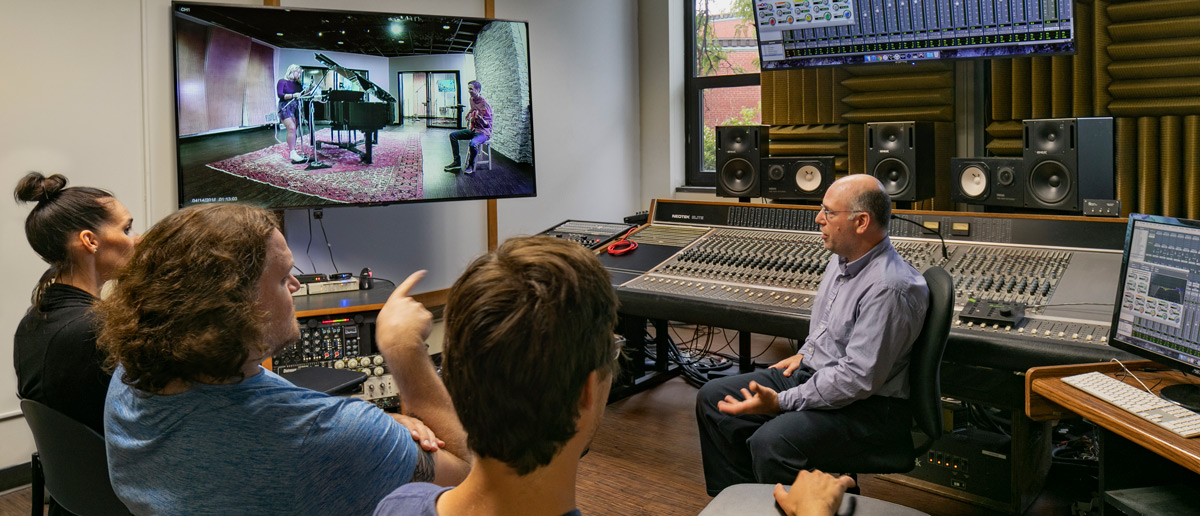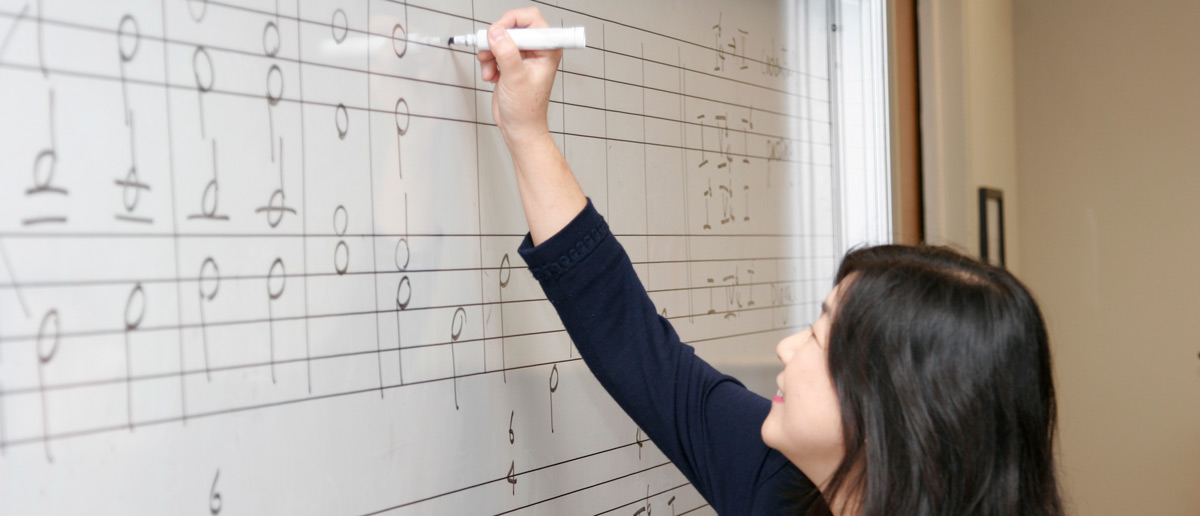Admission and Audition Requirements
Bachelor of Music
Undergraduate applicants are required to interview with a member of the music history faculty. The interview provides an opportunity for the applicant to discuss the program, and its emphases in scholarship and research and in performance practice, and to confer about a career in music history. It also allows the faculty member to learn more about the applicant's background and training in music. Undergraduate applicants are also required to audition on an instrument or voice. The audition ensures that the applicant is at a performance level sufficient to participate in one of the school's ensembles--an essential component of the music history program.
Music History Minor—Undergraduate
Applicants must interview with the music history department chair and secure their approval for admission. To add the minor, the student must complete a Change of Curriculum form that requires the signature of the student, the student’s advisor, the music history chair, and the Music Studies division director. The minor is open to both Hartt and non-Hartt students.
Master of Music
Applicants to the master’s degree program should have a bachelor’s degree in music or a related field. Master’s students may choose among emphases in scholarship and research, performance practice, or music history pedagogy. Regardless of emphasis, all applicants are required to interview with a member of the music history faculty and to submit a research paper that demonstrates their knowledge of a music-related topic, their ability to write at a high level, and their ability to conduct research and/or analysis. Applicants’ research papers should consist of no fewer than 15 pages, complete with citations and bibliography, and must be submitted with their application to the University of Hartford. Applicants with questions about the research paper should feel free to contact the chair of the music history program and/or the Music Studies division director. Applicants in the performance practice emphasis must also audition on an instrument or voice. Learn more about the audition requirements.
All new, incoming graduate students will take placement exams during orientation week to determine the appropriate course of study and whether subject review courses are necessary
Music History Minor—Graduate
Applicants must interview with the music history department chair and secure their approval for admission. To add the minor, the student must complete a Change of Curriculum form that requires the signature of the student, the student’s advisor, the music history chair, and the Music Studies division director. Students may choose between an emphasis in music history or an emphasis in music history pedagogy.

